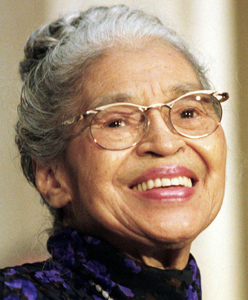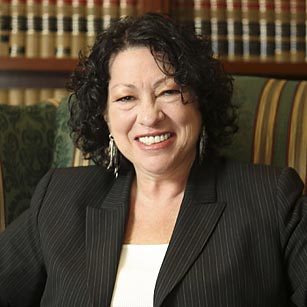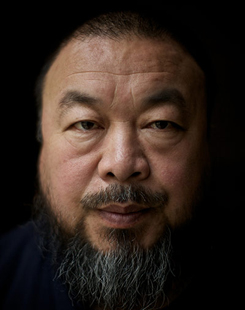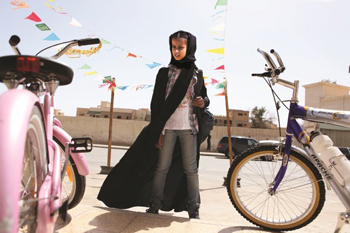The Best of the Rest, 2013: Books and Films
For Sunday December 29, 2013
Lectionary Readings (Revised Common Lectionary, Year A)
Isaiah 63:7–9
Psalm 148
Hebrews 2:10–18
Matthew 2:13–23
Every Sunday night JwJ posts an essay based on the Revised Common Lectionary, a book review, a film review, and some poetry. Once a month David Werther writes a music review for us.
Over the holidays I've "reviewed our reviews" for 2013. While there's no accounting for personal taste, here are my favorite books and films from the last year. For my full review, click on the titles.
And by the way, don't miss our Comprehensive Index of Book Reviews, where you can search over 400 book reviews alphabetically by author or by fourteen different subject categories like history, economics, science, art, and memoir. Similarly, with our Comprehensive Index of Film Reviews you can search our movie reviews alphabetically by title or by country (with films from 80 countries). And if you ever get stuck, just go to the upper left corner of any page and "search our site."
FILMS
Ai Weiwei: Never Sorry (2012) — China
In October 2011, Art Review magazine named Ai Weiwei the number one artist in the world in their annual "top 100." This 90-minute documentary gives a good feel for his art, which has been featured at major galleries around the world, and his aggressive protests against the Chinese government. "If we don't push things," says Weiwei, "nothing will happen." On Netflix streaming.
 |
Rosa Parks. |
Amour (2012) — France
Director Michael Haneke won a Palme D'Or at the 2012 Cannes festival for this portrayal of an octogenarian couple who come to the end of their long love. Old age isn't for sissies, but that's not the end of the world if it's a love story like this. “We’ve always coped, your mother and I,” Georges says. In French with English sub-titles.
Detropia (2012)
This sad documentary looks at the fate of contemporary Detroit, which in 1930 was the fastest growing city in the world. The film makers look at the city through the eyes of a restaurant owner and a UAW president, and to a lesser extent through the perspectives of a video blogger, the mayor Dave Bing, the Detroit Opera, and resilient citizens who refuse to give up.
Django Unchained (2012)
Quentin Tarantino's spaghetti western has been criticized for its graphic violence about slavery, even though parody is always near. It's no worse than any of his other films, which isn't much of a caveat, but fans and critics have still loved it — it was nominated for four Oscars.
Enemies of the People (2009) — Cambodia
Thet Sambath's brother and parents were among the two to three million people killed by execution, torture, starvation and disease in the genocide by the ruthless Khmer Rouge, Cambodia's Communist Party that ruled the country from 1975 to 1979. For ten years Sambath spent his weekends taking his camcorder around the country to record the oral histories of all who would speak to him about those dark days. The film premiered at the 2010 Sundance Film Festival. On Netflix streaming.
Fruitvale Station (2013)
Fruitvale Station won several awards at both Sundance and Cannes for its dramatization of the murder of 22-year-old Oscar Grant by BART police in Oakland on December 31, 2008. It's the first film by director Ryan Coogler, who was still a film student at USC when he pitched the idea back in 2011. As fate would have it, the film was released right after George Zimmerman was acquitted for shooting Trayvon Martin.
The Gatekeepers (2012) — Israel
This documentary interviews all six living former heads of Shin Bet, Israel's secretive security agency that's the rough equivalent of the CIA. These chastened men look back over fifty years of the Palestinian conflict and conclude, to a person, that peace through violence will never happen. As one of them said, when you retire and think about these things, it makes you a "leftist." "We've become a cruel people," said another. In Hebrew with English sub-titles.
 |
Sonia Sotomayor. |
They Call It Myanmar (2012) — Burma
Next to North Korea, Burma might be the most closed country in the world. Robert Lieberman, a physicist at Cornell, was invited to Burma by the State Department. He spent two years documenting what he experienced. Burma is a land of contrasts. It has Buddhist temples that are 2,500 years old. It's home to over 130 ethno-linguistic groups. But with a history of British colonization, Japanese occupation, and a military regime since 1948, it has suffered horribly. Since this film was made, both Hillary Clinton and President Obama have visited Burma, with signs from both sides of political change. On Netflix streaming.
To The Wonder (2013)
This film follows Terrence Malick's 2011 film The Tree of Life, which won the Palme d'Or for best picture at the Cannes festival. The two are quite similar in form and content. Except for the whispery voice overs, the characters in the film almost never speak. This is a film of images, not linear narrative. We never learn anyone's name. Javier Bardem plays a priest who struggles with all the sorrow he experiences: "All I see is failure, destruction, and ruin." The last line of the movie is a life-affirming prayer: "Love that loves us, thank you."
Wadjda (2013) — Saudi Arabia
Wadjda is a spunky ten-year-old girl in Riyadh who's living on the adolescent borderline between innocence and knowledge. She wears canvas high tops with stars and purple shoe laces, paints her toenails, listens to rock music at home, and saves up to buy a bike so that she can race her neighborhood buddy Abdullah. The film, written and directed by Haifaa Al Mansour, is the first feature length film by a Saudi woman, and it tackles gender roles head on. In Arabic with English subtitles.
BOOKS
Bernard Bailyn, The Barbarous Years; The Peopling of British North America: The Conflict of Civilizations, 1600–1675 (New York: Knopf, 2012), 614pp.
Bernard Bailyn's twenty books have earned him two Pulitzer Prizes, a Bancroft Prize, a National Book Award, and the National Humanities Medal. This volume completes his trilogy on the "peopling" of the North American continent that began with The Peopling of British North America (1986), and Voyagers to the West (1986). Bailyn disabuses us of the stereotype of white Anglicans displacing native Americans. These people faced deep conflicts in every area of life — racial conflicts with the Indians, religious conflicts within and between groups, conflicts with public and private authority (economic, social, legal, civil, political), conflicts about property rights, and conflicts among ethno-linguistic subcultures. But by the end of the seventeenth century, the Atlantic seaboard was a globalized world, the first "hemispheric 'community'" in human history.
Karima Bennoune, Your Fatwa Does Not Belong Here; Untold Stories From the Fight Against Muslim Fundamentalism (New York: W.W. Norton, 2013), 402pp.
How do you condemn suicide bombings and public beheadings without incurring the charge of being anti-Islam? Karima Bennoune opposes those on the right who feed anti-Muslim agendas, but she's just as hard on liberal multiculturalists who make concessions in the name of tolerating religious differences. We often hear the question, "Why don't Muslims speak out against the violence perpetrated by their religion?" Bennoune's oral history collects the stories of Muslims who are repudiating violence. Her book is based upon interviews with 286 Muslims from 26 countries.
 |
Ai WeiWei. |
Katherine Boo, Behind the Beautiful Forevers; Life, Death, and Hope in a Mumbai Undercity (New York: Random House, 2012), 257pp.
Across the street from Mumbai's glistening international airport, encircled by five luxury hotels, and next to a vast pool of sewage, is a tiny slum called Annawadi. Because of its location, it is "magnificently positioned for a trafficker in rich people's garbage." And if you live in Annawadi, that's what you do; you collect, sort, and sell garbage — eight thousand tons a day of Mumbai's garbage. Boo, who spent four years living in Annawadi to research this book, won a Pulitzer Prize for earlier work on group homes for the mentally retarded. In November 2012, Behind the Beautiful Forevers won the National Book Award.
Esther de Waal, editor, The Celtic Vision; Prayers, Blessings, Songs and Incantations from the Gaelic Tradition (Liguori, MO: Liguori Publications, 2001), 171pp.
For sixty years the folklorist Alexander Carmichael (1832–1912) traversed Scotland's Outer Hebrides isles collecting and translating the traditions of its Gaelic-Catholic people. His labor of love was published in six volumes across seventy years as Carmina Gadelica (Hymns of the Gael): Hymns and Incantations, With Illustrative Notes on Words, Rites, and Customs, Dying and Obsolete: Orally Collected in the Highlands and Islands of Scotland. De Waal's book is a collection of excerpts which she has organized into sixteen different categories.
Christopher Hitchens, Mortality (New York: Twelve Books, 2012), 109pp.
When Hitchens died of esophageal cancer in December 2011, the world lost one of its most colorful and controversial public intellectuals. In this posthumous volume, Hitchens describes his last days. He meditates on the poetry of TS Eliot: "I have seen the moment of my greatness flicker, / And I have seen the eternal Footman hold my coat, and snicker; / and I am afraid." As for Philip Larkin's famous Aubade, with its terrifying description of fear in the face of death, Hitchens describes it as an implied reproof of stoicism, and then concludes: "atheists ought not to be offering consolation either." And there's one tantalizing tidbit in the last chapter of unfinished jottings: "If I convert it's because it's better that a believer dies than that an atheist does." This is left unexplained, and otherwise Hitchens remained an atheist to the end.
Evgeny Morozov, To Save Everything, Click Here; The Folly of Technological Solutionism (New York: PublicAffairs, 2013), 432pp.
The self-described "digital heretic" Morozov deconstructs the hubris of Silicon Valley that would fix all our problems, including its disdain for anyone who questions its motives, means, and goals.
Michael Moss, Salt, Sugar, Fat: How the Food Giants Hooked Us (New York: Random House, 2013), 446pp.
The United States is the most obese country in the world. Michael Moss, winner of a Pulitzer Prize, explains how we got to this point. True, consumers bear their own responsibilities, but he lays the blame squarely upon the food behemoths like Cargill, Philip Morris, Kraft, General Foods, and Coca-Cola for poisoning us. Despite a few hopeful signs from the food industry, don't expect any help from them. They deny their culpability. Nor from the government, which aids and abets them. But we're not helpless; we have choices.
 |
Wadjda. |
John Schwartz, Oddly Normal; One Family's Struggle to Help Their Teenage Son Come to Terms with His Sexuality (New York: Gotham Books, 2012), 290pp.
Joseph was the third child for John and Jeanne Schwartz, so they felt pretty good about their parenting skills, "semi-pro at least." But early on they knew that Joseph was different. As a preschooler he loved pink shoes, played with dolls, and hated sports. "We knew we had a very girly boy," says Schwartz. Being gay wasn't a problem in their view, but knowing it for sure, and knowing how to help Joseph with the ramifications, took many more difficult years. This book is a powerful reminder of how hard it is to be different.
Sonia Sotomayor, My Beloved World (New York: Knopf, 2013), 315pp.
Sotomayor was a young girl when she knew she wanted to become a judge. There were a few obstacles. She was born to Puerto Rican immigrants in the tenement projects of the Bronx. Spanish was the first language at home. When she was seven, she was diagnosed with Type 1 juvenile diabetes, and started giving herself daily insulin shots. When she was nine, her alcoholic father died, leaving his wife a single mom at the age of thirty-six. No one in the family ever had a bank account. Sotomayor writes in an informal style and with unusual candor and vulnerability about her unlikely pilgrimage. The only disappointing thing about this book is that it ends 20 years ago when she became a federal judge.
Jeanne Theoharis, The Rebellious Life of Mrs. Rosa Parks (Boston: Beacon Press, 2013), 304pp.
This new biography of "the mother of the civil rights movement" coincided with the 100th anniversary of her birth on February 4, 1913. Remarkably, it's the first comprehensive and critical biography of one of the most important women in American history. Theoharis dispels two common myths about Parks. First, she was no accidental heroine. Parks had been an active leader in the civil rights movement since 1943, when she joined the NAACP. And second, her refusal to give up her seat was not the random act of a single day. In Parks's own words, "I had almost a life history of being rebellious against being mistreated because of my color."
Image credits: (1) National Public Radio; (2) Chicago Now; (3) The Guardian; and (4) Internet Movie Database.





